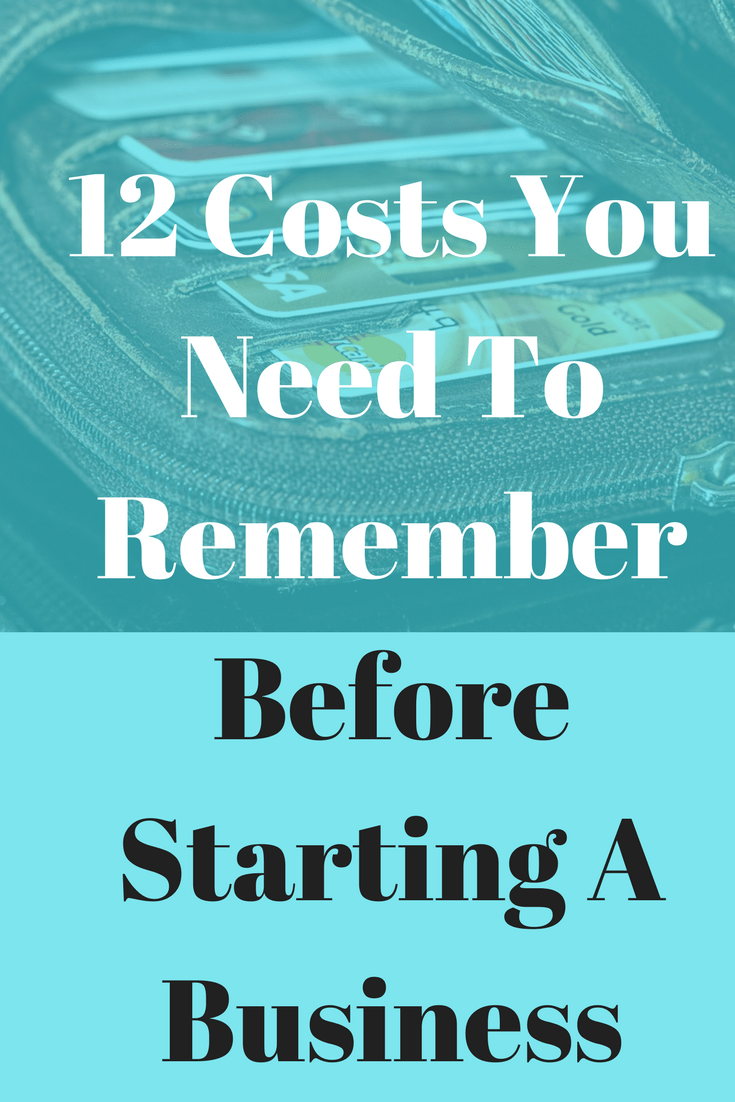Starting your own business is one of the most rewarding things that you can do with your time, but that doesn’t mean that it comes without risks. Although the exact figure is widely debated, it’s commonly believed that nine out of ten business fail, most within their first year. Luckily, this figure doesn’t mean that your business is doomed; Most of these businesses fail because they don’t manage their money properly and inevitably run out. With that in mind, here are twelve costs that you should know about before starting your own business.

- The Paperwork
There is a lot of paperwork that you have to complete to start a business, including licenses and permits, and most of these require you to make a payment. Unfortunately, these payments are rarely a one-time thing, and usually need renewing after a set amount of time. You need to remember this for later on, or you could end up with some serious cash flow problems.
- Office Space
Your business may start off in your home, but you may need to buy or rent office space at some point in the future. Despite how big of a cost this is, it’s something that most new business owners commonly forget. When you do decide to find a space, make sure you take your time finding somewhere that is just right for you. If you get anywhere that’s too small or large, or just doesn’t have what you need, you’ll only end up spending more later on.
- Gas And Electricity
The energy you use to heat and light your office is going to cost you a lot, and often this cost is enough to derail any plans for growth or improvement. Make sure you shop around for your energy supplier and find one that fits your needs and budget. If the costs start to get too much, contact your supplier about possible savings or ways to be more energy efficient.
- Insurance
It’s often sensible to get professional advice when it comes to choosing the right cover for you and your business. There are some types of insurance that you’re legally required to take out, and some that you might not have heard of that could be a huge benefit to you, so it can get pretty complicated. It’s essential that you have the proper cover, as it could save you getting into trouble later on.
- Office Equipment
It’s easy to remember big things you need for your office, like chairs and computers, but what about paper and pens? These are things that you have to buy every single month, and this is something that business owners rarely take into consideration. If you want to save money, it’s often cost efficient to buy these things in large bulks.
- Upgrades, Repairs, Replacements
Your computer might be working fine now, but that doesn’t mean that it will be in six months. It’s important that you budget for upgrades, repairs, and replacements for your computer, and other equipment, like mobile phones and tablets. You also need to keep up with maintenance, to keep things running properly for as long as possible.
- Storage Facilities
You may have your office, but that doesn’t mean that there’s enough space there to store stock, goods, spare equipment, and anything else. If this is the case for you, then you’re going to need to find self storage near you. With a little research, it is possible to find companies that are relatively cheap, and are willing to work with your budget.
- Shrinkage
No business owner plans to lose goods through damage, theft, fraud, or error, but it happens every single day, and it’s something that you need to plan for. Installing an inventory management system is a great way to reduce shrinkage, as it keeps tabs on everything from materials to stock ready to be sold. You should also make it clear to employees that certain things aren’t okay, such as taking stationary home from work.
- Employees
Your business probably started with just you, but you are going to need help to grow. This is where employees come in. Unfortunately, as essential and useful as they may be, they can also cost quite a bit. Their wages are an obvious cost, but you also have to take training, insurance, sick pay, and rewards into account too.
- Professional Help
New business owners rarely know everything there is to know about running a business, and so you will likely have to get some professional help at some point. Of course, you can get help for free through forums and blogs, but you will also have to invest some money for a lawyer and an accountant. Trust me, it will cost you a lot less to hire this help than it will to fix a mistake when you mess something up.
- Credit Card Fees
Businesses cost a lot of money to run, and you are going to run into some cash flow trouble at some point. When this occurs, it’s always good to have backup funding, such as with a credit card. Unfortunately, the fees on these credit cards can get pretty high. If you want to save some cash, you should shop around for the best interest rates, and try to pay bills on time when you can.
- Your Time
You’ll soon start to understand that, as a business owner, your time really is money. If you’re spending too much time on one task, you’ll inevitably neglect another one, which could cost you quite a bit. Because of this, it’s important that you take steps to improve your time management and delegate more unimportant tasks to employees. This will give you more time to deal with essential tasks, and will also allow you to spend more time with your family.
Poor money management is one of the biggest reasons why small businesses fail. If you want yours to survive and grow, you need to consider and remember all of the costs above.



